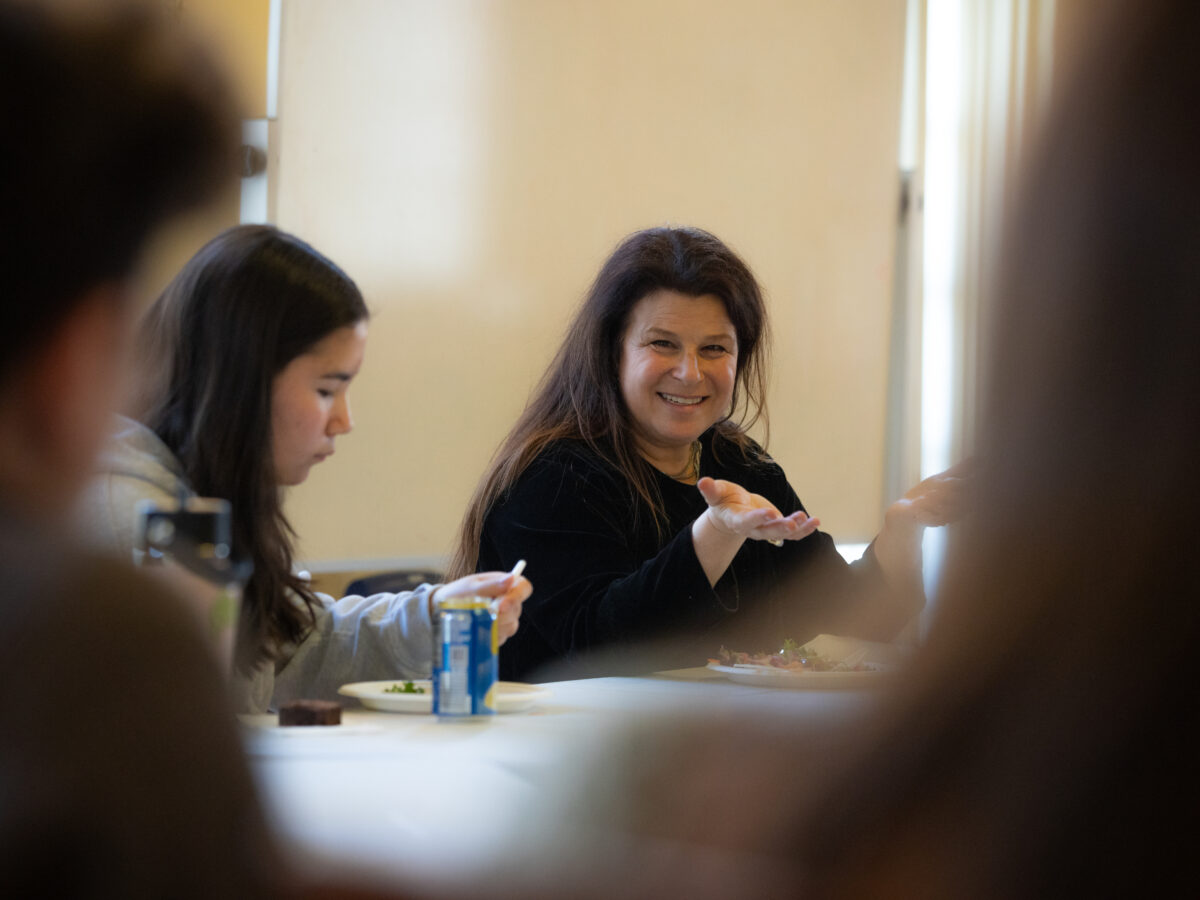‘Stay vigilant to what we know is right’

Filmmaker shares story of Jewish resistance for Holocaust Remembrance Day.
Last week Exeter welcomed acclaimed documentary filmmaker Julia Mintz for a screening of her film Four Winters, a documentary feature about the Jewish partisans who fought against the Nazis from the forests of Eastern Europe during World War II. In addition to the screening, Mintz gave an assembly presentation, sat in on two history classes, HIS553: Law and American Society and HIS304: The European Century, 1800-1914, and joined students and faculty for lunch and conversation in the Elting Room.
During her assembly, Mintz, a writer, producer and director whose films have been shown at the Cannes, Sundance and TriBeCa Film Festivals — among others — said she has followed a throughline or “sense of compass,” during her career to tell the stories of “ordinary people who do extraordinary things.”
“My life’s work has been dedicated to telling the stories of moral courage across time, cultures and communities,” Mintz said.
Mintz visited campus as part of Exeter’s observance of Holocaust Remembrance Day (April 24), or Yom HaShoah in Hebrew. Observed in Israel and by Jewish communities around the world, the annual occasion commemorates the 6 million Jews and others killed during the Holocaust and honors those who survived.
According to the United States Holocaust Memorial Museum, the date for Yom HaShoah corresponds to the 27th day of Nisan (April/May) on the Hebrew calendar. It also marks the anniversary of the Warsaw Ghetto Uprising, the desperate attempt by Jewish fighters to prevent the Nazis from deporting the remaining Jewish residents of Warsaw’s ghetto to concentration camps in the spring of 1943.
While the uprising in Warsaw was arguably the most famous act of Jewish resistance and resilience against the Holocaust, it was far from the only one, as Mintz’s film shows. “[Four Winters] shatters the myth of Jewish passivity, illuminates the many ways in which Jews resisted the Nazis and celebrates the soulful bravery, cleverness, and leadership of their efforts,” Ethan Benenson ’26, co-head of the Exeter Jewish Community (EJC), said while introducing Mintz in assembly.
The Jewish partisans numbered more than 25,000 people — many of them teenagers — who escaped the ghettos and work camps. They banded together in brigades operating from deep within the forests of Belarus, Ukraine and Eastern Europe; others joined the partisan units formed in France and Italy to help regular Allied forces defeat the Nazis. Four Winters includes interviews with the last living partisans, as well as personal photographs, letters, journals and archival film footage of their experiences.
“I think one of the things that’s so essential at this moment in time is that we recognize that history is part of a continuum,” Mintz said. “Each and every one of you has a voice and a role to play just like [the partisans] did.” Near the end of the assembly, she stressed this point. “Remembering the Holocaust is important, not just because it’s history…but it’s a reminder that we must stay vigilant to what we know is right.”